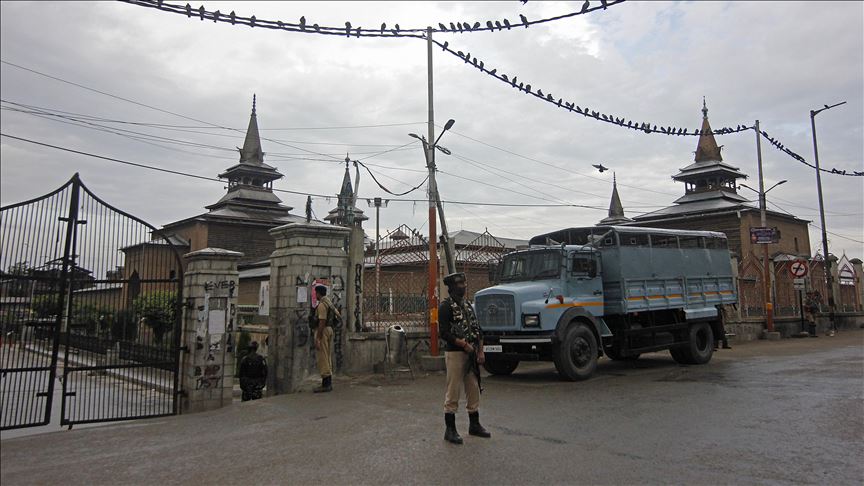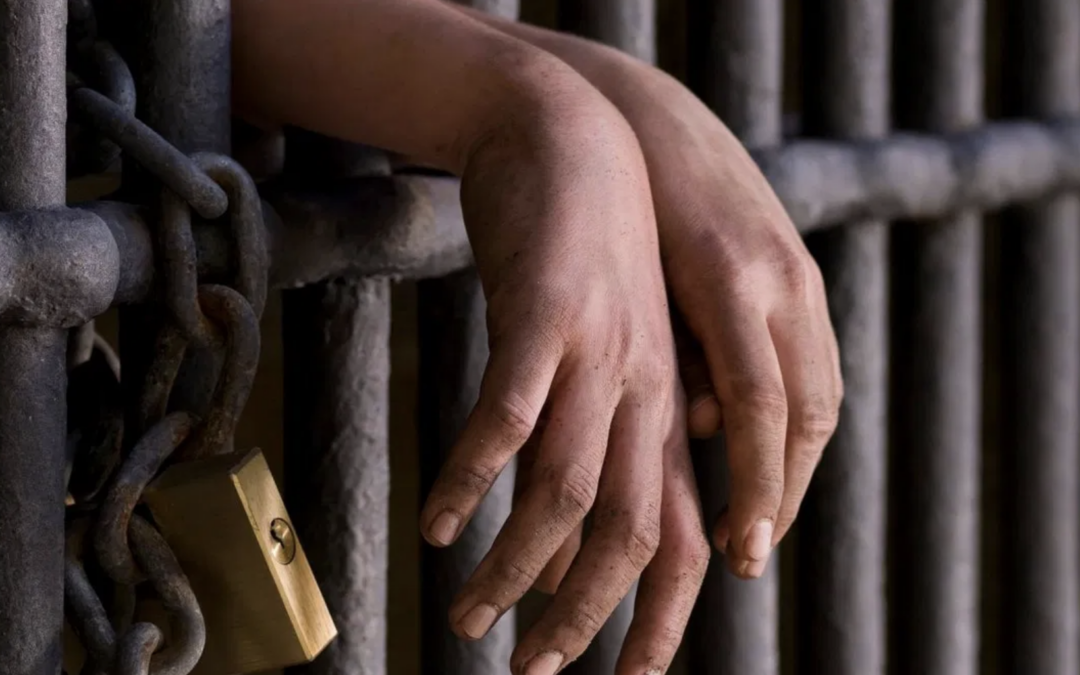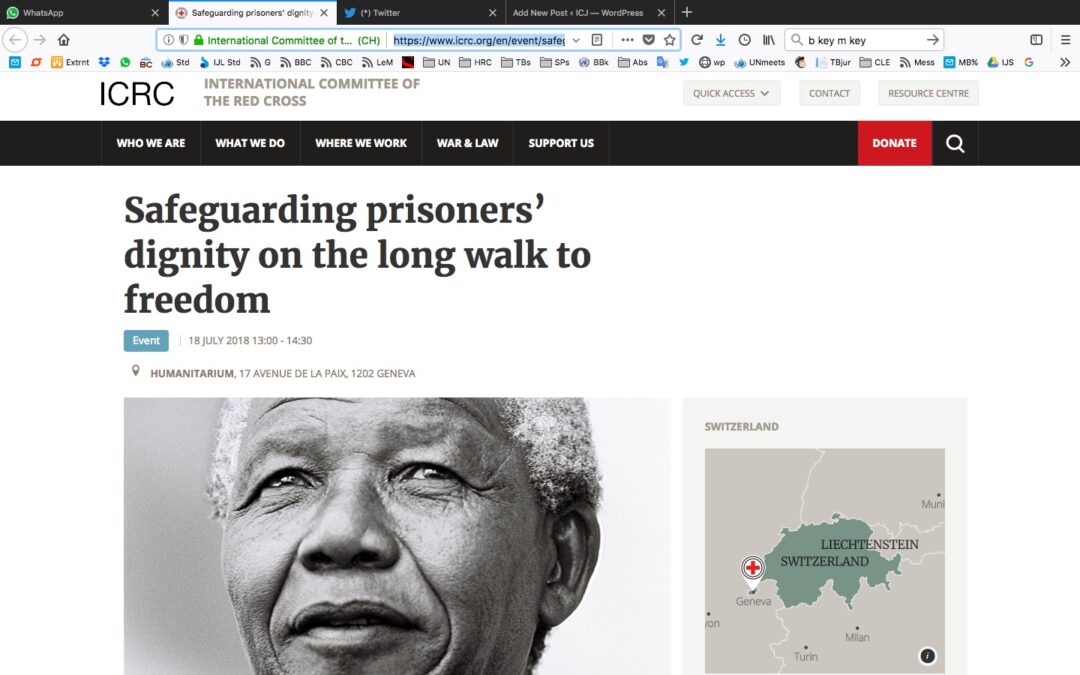
Apr 6, 2020 | News
ICJ has joined other NGOs in welcoming steps taken by Indian authorities to decongest prisons in an effort to contain the novel coronavirus (COVID-19). The Government should release all unjustly detained prisoners as a matter of priority.
The joint statement read as follows:
The fate of hundreds of arbitrarily detained Kashmiri prisoners hangs in the balance as the number of confirmed cases of coronavirus in India passes the 4,000 mark and many more are likely to remain undetected or unreported.
Inmates and prison staff, who live in confined spaces and in close proximity with others, remain extremely vulnerable to COVID-19. While the rest of the country is instructed to respect social isolation and hygiene rules, basic measures like hand washing – let alone physical distancing – are just not possible for prisoners.
Under international law, India has an obligation to ensure the physical and mental health and well-being of inmates. However, with an occupancy rate of over 117%, precarious hygienic conditions and inadequate health services, the overcrowded Indian prisons constitute the perfect environment for the spread of coronavirus.
In a bid to contain the spread of the disease among inmates and prison staff, the Supreme Court asked state governments on 23 March 2020 to take steps to decongest the country’s prison system by considering granting parole to those convicted or charged with offenses carrying jail terms of up to seven years.
The United Nations High Commissioner for Human Rights Michelle Bachelet also called on governments to “examine ways to release those particularly vulnerable to COVID-19, among them older detainees and those who are sick, as well as low-risk offenders.”
Various state governments in India have now begun releasing detainees. However, there is a concern that hundreds of Kashmiri youth, journalists, political leaders, human right defenders and others arbitrarily arrested in the course of 2019, including following the repeal of Article 370 of the Indian Constitution on 5 August 2019, will not be among those benefiting from the measure. Article 370 provided special status to Jammu & Kashmir.
Human rights groups and UN experts have repeatedly called for the release as a matter of priority of “those detained without sufficient legal basis, including political prisoners and others detained simply for expressing critical or dissenting views.”
Last month, the Ministry of Home Affairs revealed that 7,357 persons had been arrested in Jammu & Kashmir since 5 August 2019. While the majority have since been released, hundreds are still detained under sections 107 and 151 of the Criminal Procedure Code, the Unlawful Activities (Prevention) Act (UAPA), and the Public Security Act (PSA), a controversial law which allows the administrative detention of any individual for up to two years without charge or trial. Reportedly, many of those still detained are minors.
Many of those detained were transferred to prisons all across India, thousands of kilometers away from their homes, hampering their lawyers’ and relatives’ ability to visit them. Some of the families, often too poor to afford to travel, have been left with nothing but concerns over the physical and psychological well-being of their loved ones.
Mr. Miyan Abdul Qayoom, a human rights lawyer and President of the Jammu & Kashmir High Court Bar Association, was also cut off from his family and lawyer. Detained since 4 August 2019 in India’s Uttar Pradesh State, he was transferred to Tihar jail in New Delhi following a deterioration of his health. Mr. Qayoom, 70, suffers from diabetes, double vessel heart disease, and kidney problems.
Mr. Ghulam Mohammed Bhat was also transferred to a jail in Uttar Pradesh. In December 2019, he died thousands of kilometers away from his home at the age of 65 due to lack of medical care.
With the entire country in a lockdown and a ban on prison visits for the duration of the outbreak imposed, inmates are more isolated from the outside world than ever. In such a situation, prison authorities must ensure that alternative means of communication, such as videoconferencing, phone calls and emails, are allowed. However, this has not often been the case. Especially in Jammu & Kashmir, where full internet services are yet to be restored after a communication blackout imposed on the population on 5 August 2019, contacts between inmates and the outside world are even more limited.
- Amnesty International India
- Asian Forum for Human Rights and Development (FORUM-ASIA)
- CIVICUS: World Alliance for Citizen Participation
- International Commissions of Jurists (ICJ)
- International Federation for Human Rights (FIDH)
- World Organisation Against Torture (OMCT)
To download the statement with detailed information and key recommendations, click here.

Mar 30, 2020 | News
The ICJ is calling on the Turkish Parliament to extend the planned provision of alternatives to detention in response to the COVID-19 crisis to all those imprisoned for non-violent crimes who do not pose a current threat to members of the public, regardless of the nature of the offences for which they have been charged.
In particular, alternatives to detention should apply to all those detainees who are particularly at risk at losing their life or suffering severe health effects from COVID-19.
Measures to protect the right to life, the right to health and other human rights must apply equally and without discrimination in line with Turkey’s international legal obligations.
The government have announced the tabling of a draft law to reduce the prison population that has been under discussion in recent months. The process has been accelerated with the purported aim of addressing the serious health risk that an outbreak of COVID-19 contagion would pose to the prison population. However, the draft law has not been adapted to address the health crisis and contains several shortcomings.
The new measures would grant alternatives to detention, including house arrest or early parole to an estimated one-third of the prison population.
This welcome move is however limited by the exclusion of those convicted or under trial for terrorism offences or offences against the State.
“In Turkey, terrorism offences and offences against the State have long been abused to arrest, try and jail human rights defenders, lawyers, judges and political opponents,” said Massimo Frigo, Senior Legal Adviser for the ICJ Europe and Central Asia Programme. “The rights to life and health of these groups are now at particular risk.”
The ICJ considers that it is also essential that all detainees who are members of a group whose life or health may be at risk because of COVID-19 have either access to alternatives to detention, if they do not pose a current threat to public safety, or, otherwise, to detention conditions that may preserve them as far as possible from such risk.
“The State has a non-derogable obligation to protect the right to life of all its prison population, without discrimination of any sort,” Massimo Frigo added.

Mar 24, 2020 | Advocacy, Non-legal submissions
In light of the global COVID-19 pandemic outbreak—qualified as a Public Health Emergency of International Concern by the World Health Organization (WHO)—the ICJ, together with 39 other organizations, today expressed grave concern over the situation of detainees and prisoners across the Middle East and North Africa (MENA) and called on governments in the MENA region to:
- Make known to the public their country-specific, and if relevant, facility-specific policies and guidelines in place to prevent the spread of COVID-19 in detention centers, prisons, and police stations.
- Share their emergency preparedness plans and provide specific training to relevant staff and authorities to ensure sufficient and sustained access to healthcare and hygiene provision.
- Conduct a thorough review of the prison population and in turn, reduce their prison populations by ordering the immediate release of:
-
- “Low-risk” detainees and prisoners, including those convicted or held in pretrial detention (remand) for nonviolent offences; administrative detainees; and those whose continued detention is not justified;
- Detainees and prisoners particularly vulnerable to the virus, including the elderly, and individuals with serious underlying conditions including lung disease, heart disease, diabetes, and autoimmune diseases.
- Allow individuals serving probation and probationary measures to fulfill their probation and probationary measures in their homes.
- Guarantee that individuals who remain in detention:
-
- Have their right to health effectively upheld by being granted full access to medical care as required;
- Access COVID-19 testing and treatment on a standard equal to that governing the general population;
- Are provided with means of communication and opportunities to access the outside world when in-person visits are suspended;
- Continue to enjoy their right to due process, including but not limited to the right to challenge the lawfulness of their detention, and their right not to experience delays that would render their detention arbitrary.
Full English language joint statement (in PDF): MENA-Covid-19-Prisons-Advocacy-2020-ENG
Full Arabic language joint statement (in PDF): MENA-Covid-19-Prisons-Advocacy-2020-ARA

Jun 27, 2018 | Events, News
ICJ Senior Legal Adviser Matt Pollard will speak at an ICRC event on 18 July, marking Nelson Mandela International Day.The event, 18 July 2018, 13:00 – 14:30, will take place at the ICRC Humanitarium, 17 avenue de la paix, in Geneva.
On 18 July, the ICRC is marking Nelson Mandela International Day with the launch of a new edition of ‘A Human Rights Approach to Prison Management’ by the Institute for Criminal Policy Research. This Handbook, which has been translated into 19 languages, is used by the ICRC and many others around the world.
During the launch, author Professor Andrew Coyle will reflect on developments in the use of imprisonment worldwide over the last 20 years, focusing on topical issues such as the use of highly restrictive forms of detention for certain categories of prisoner, including solitary confinement. Detention experts from the ICRC and Geneva-based international organizations, the Association for the Prevention of Torture (APT) and the International Commission of Jurists (ICJ) will respond, and there will be space for questions and discussion.
In December 2015 the UN General Assembly adopted revised United Nations Standard Minimum Rules for the Treatment of Prisoners, to be known as the Nelson Mandela Rules in honour of the contribution of South Africa to the Rules’ development and of the legacy of the late President of South Africa, Nelson Rolihlahla Mandela, who spent 27 years in prison. In the accompanying resolution, the General Assembly decided to extend the scope of Nelson Mandela International Day as an opportunity to promote humane conditions of imprisonment, raise awareness about prisoners being a continuous part of society and to value the work of prison staff as a social service of particular importance.
Speakers:
- Andrew Coyle, Emeritus Professor of Prison Studies at Kings College, University of London
- Barbara Bernath, Secretary General of the Association for the Prevention of Torture
- Matt Pollard, Senior Legal Adviser to the International Commission of Jurists
- Sara Snell, Prison System Adviser to the International Committee of the Red Cross
- Valérie Belchior-Bellino Captier, Detention Nutrition Adviser to the ICRC
For more information and to register, click here.








